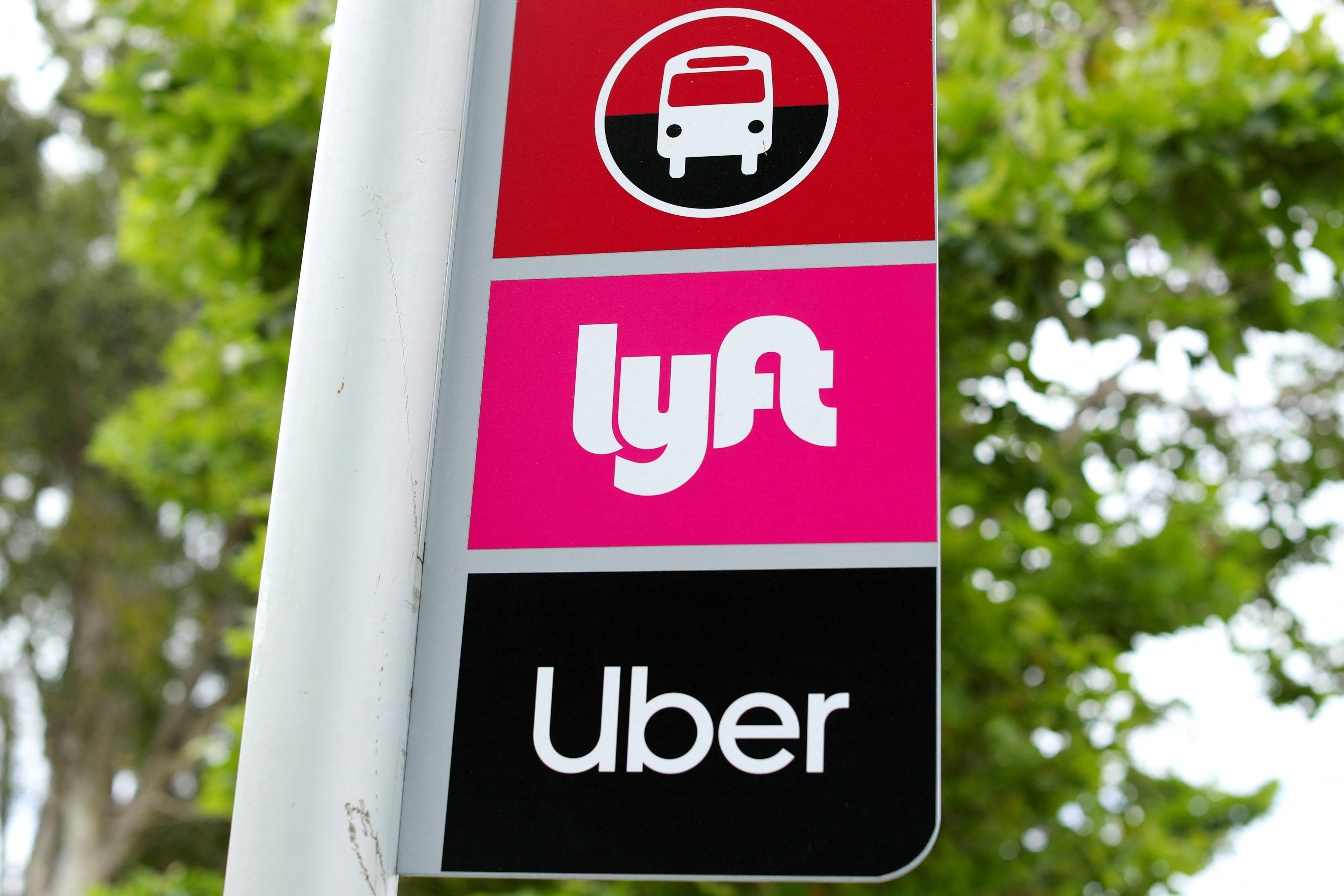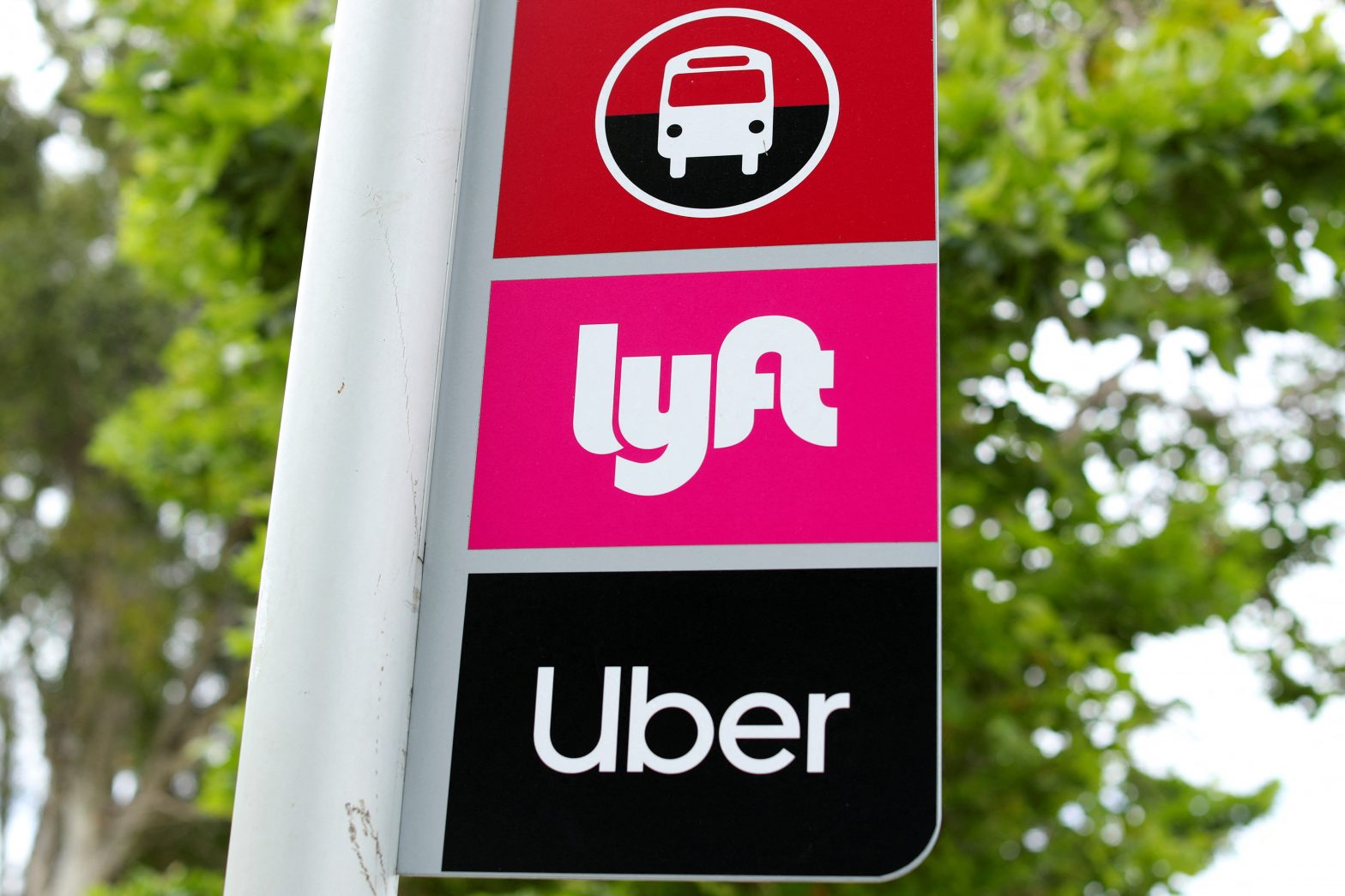
A sign marks a rendezvous location for Lyft and Uber users at San Diego State University in San Diego, California, U.S., May 13, 2020. REUTERS/Mike Blake/File Photo Acquire Licensing Rights
NEW YORK, Nov 2 (Reuters) – Uber (UBER.N) and Lyft (LYFT.O) will pay a combined $328 million to settle claims by New York’s attorney general that the ride-sharing companies systematically cheated drivers out of pay and benefits.
Attorney General Letitia James said Uber will pay $290 million and Lyft will pay $38 million to resolve her office’s multi-year investigation into the companies, calling it the largest wage theft settlement in her office’s history.
Drivers will also be guaranteed minimum hourly rates and paid sick leave. They will also be given notices and in-app chat support to address questions about earnings and other working conditions.
James’ probe addressed claims that Uber and Lyft improperly collected some taxes and fees from New York drivers rather than passengers.
It also addressed the companies’ practices of classifying drivers as independent contractors instead of employees.
More than 100,000 current and former drivers in the state are eligible to benefit from the settlements.
“This is huge,” said Shannon Liss-Riordan, a lawyer who represents thousands of Uber and Lyft drivers challenging the companies’ practices. “This settlement could help advance other states’ efforts to reach a recovery for drivers whose rights have been violated.”
Uber and Lyft, both based in San Francisco, denied wrongdoing, and called their settlements a “win” for drivers.
Shares of both companies rose following the settlements, with Uber gaining more than 6% and Lyft gaining more than 9%.
Tony West, Uber’s chief legal officer, in a statement said Uber’s settlement “helps put to rest” the classification issue and will be a model for other states.
Lyft said in a separate statement it believes it has always properly classified drivers as independent contractors.
DRIVER CLASSIFICATIONS
Uber and Lyft have long defended against claims nationwide that they shortchange drivers, many of whom are immigrants, out of pay and benefits, including by refusing to classify them as employees.
Both companies have said many of their drivers prefer working as independent contractors.
The payments equal a little under 1% of Uber’s and Lyft’s annual revenue.
James accused Uber and Lyft of improperly deducting sales taxes and fees for a workers compensation fund from drivers’ payments, though passengers should have paid those amounts.
Uber’s alleged violations occurred from November 2014 to May 2017, and Lyft’s from October 2015 to July 2017.
James said both companies also denied drivers sick leave that state and New York City employees are legally entitled to receive.
Thursday’s settlements ensure that drivers “finally get what they have rightfully earned and are owed under the law,” James said in a statement.
In a separate development, Uber agreed with the New York State Department of Labor to begin making quarterly payments to a state insurance fund to ensure that unemployed drivers receive benefits. The amount of Uber’s payments was not disclosed.
James’ probe arose from concerns from the New York Taxi Workers Alliance, which says it represents about 21,000 yellow taxi, green cab, app-based, livery and corporate car drivers.
Under the settlements, drivers outside New York City will receive a minimum $26 per hour for rides and sick leave, adjusted annually for inflation.
Drivers in New York City already receive minimum pay and some paid time off, as required by the city’s Taxi and Limousine Commission. James said Uber and Lyft drivers there will receive $17 per hour for sick leave, with inflation adjustments.
Reporting by Jonathan Stempel in New York; Additional reporting by Dan Wiessner in Albany, New York; Editing by Chris Reese, Chizu Nomiyama and Lisa Shumaker
Our Standards: The Thomson Reuters Trust Principles.
